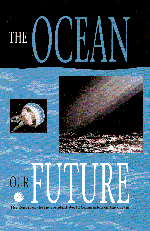4 - Valuing the Oceans
Published online by Cambridge University Press: 05 August 2012
Summary
The economically and ecologically sustainable use of ocean resources involves much more than improving management in individual sectors, such as fisheries, marine transport, and off-shore extraction of oil, gas and other minerals. It also involves recognition of the ways in which land-based activities affect the oceans. The enormous increase in economic activity and the settling of more and more people in coastal zones are threatening the ecological value of the oceans. The words ‘economy’ and ‘ecology’ both have their roots in the Greek word oikos, meaning ‘our common home’. This chapter takes oikos as its starting point. Its main purpose is to highlight the interfaces between economy and ecology and to explore the value of the marketed and neglected, nonmarketed services yielded by the oceans, with the intention of heightening awareness of their true contribution to individual and collective well-being.
THE PROBLEM
As world population, world economy and world trade have grown, so has the demand for marine and coastal resources. As technologies have developed, the range of resources that can be exploited has widened. The problem now confronting us is that ocean ecosystems are often used in ways that are unsustainable, not only in environmental but also in economic and social terms. All too often, the costs of this bear most heavily on the poor.
- Type
- Chapter
- Information
- The Ocean: Our Future , pp. 97 - 118Publisher: Cambridge University PressPrint publication year: 1998



